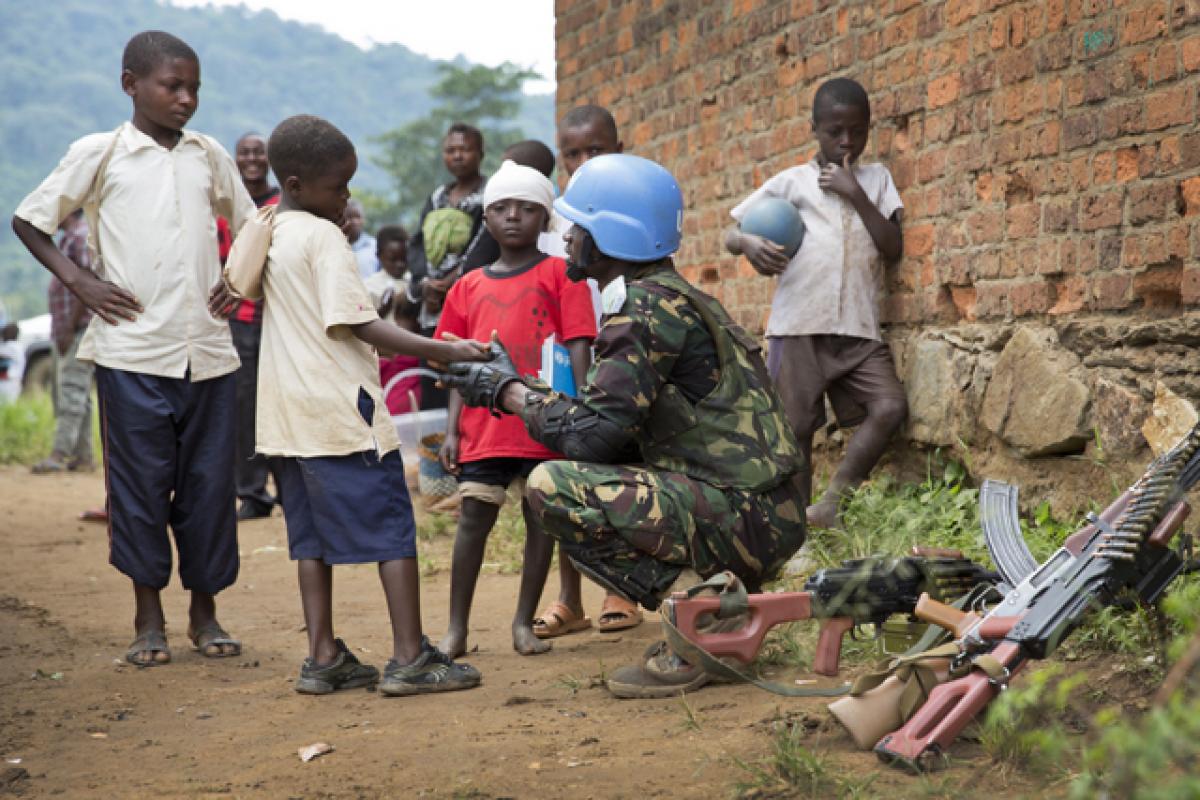Live
- Share of top 50 stocks to total market cap at all-time low: Report
- Nortje ruled out of SA’s remaining white-ball matches against Pakistan
- Mamata doesn't want INDIA bloc to succeed, claims BJP's Rahul Sinha
- Air India Express cancels flights at Chennai airport due to deluge
- Kejriwal promises Rs 2,100 for Delhi women if AAP wins polls, BJP takes ‘lollipop’ jibe
- JPC Chairman supports Assam govt's 'No NRC, No Aadhaar,' rule
- Stoinis vows to revive Melbourne Stars’ glory with fresh leadership
- DDA easing freehold conversion of shops: MoS Sahu
- CP Sudheer Babu Updates on Manchu Family Cases
- Keerthy Suresh Marries Long-time Friend Antony Thattil in Goa
Just In

UN Peacekeeping in dire need of support. Eighteen months ago, Bentiu, like most towns in South Sudan, was bustling with the restlessness of markets, people trading and children going to school.
Eighteen months ago, Bentiu, like most towns in South Sudan, was bustling with the restlessness of markets, people trading and children going to school. UNMISS (UN Mission in South Sudan) was busy supporting development and growth in the world’s youngest nation. Today, a visitor to the UN Mission’s base outside Bentiu in Unity State would see a sea of blue and white tarpaulin tents and hastily-erected stalls.

The base has become temporary home to some 63,000 civilians seeking protection from the cataclysm of violence that has gripped the new state of South Sudan since the outbreak of the political crisis in December 2013. The town of Bentiu itself remains deserted, its main dirt road lined with the grim evidence of an ongoing war in the absence of a final peace agreement between the government and the opposition forces.
The story is repeated across the country. Today, more than 1,30,000 are being protected by UN peacekeepers in seven bases, with civilians continuing to arrive at UN protection sites as they flee unimaginable suffering and grave human rights violations. In some of the harshest conditions on Earth, UN personnel must negotiate complex threats each day amidst political instability, with large, often terrified populations to protect.
They work to provide security in these places, while pursuing a political solution to ongoing conflict. This is the case in Mali, where since the establishment of the United Nations Multidimensional Integrated Stabilization Mission in Mali in July 2013, 36 peacekeepers have been killed and more than 170 others have been wounded in hostile incidents alone. It is also the case in the Central African Republic, where we are seeing encouraging signs following the 2013 breakdown in law and order and widespread ethnically motivated violence.
This year’s International Day of United Nations Peacekeepers, 29 May, fell during the significant seventieth anniversary of the United Nations. Over the course of nearly seven decades, UN peacekeeping has proven itself to be a legitimate, reliable and effective means of protecting civilians and facilitating the transition from conflict to peace.
In countries like Liberia, Timor-Leste and Bosnia Herzegovina, peacekeeping has played a critical role in helping stabilise countries as they seek to rebuild. Today, more than 125,000 military, police and civilian staffcarry on this work in 16 peacekeeping operations world-wide, our largest deployment in history, serving as a testament to the international community’s faith in peacekeeping as a tool for bringing peace and security.
Our missions require well-trained and skilled troops from a broad array of countries. When crises erupt, they must be ready to deploy more quickly to where they are most needed. And to confront the unique challenges of this century, peacekeepers require the tools and capabilities of this century. In the Democratic Republic of the Congo, unarmed unmanned aerial vehicles are being used to improve situational awareness, serve as a deterrent to armed groups and improve mandate delivery and the safety and security of our personnel.
With an annual budget of just under $8.5 billion – less than one half of one percent of global military spending – we are working to increase our value for money and using new approaches to implement our mandates more effectively and efficiently. At a moment in history where new crises and conflicts emerge constantly, the UN peacekeeping needs global support more than ever. (The writer is the Under-Secretary-General for the United Nations Department of Peacekeeping Operations)
By Hervé Ladsous

© 2024 Hyderabad Media House Limited/The Hans India. All rights reserved. Powered by hocalwire.com







